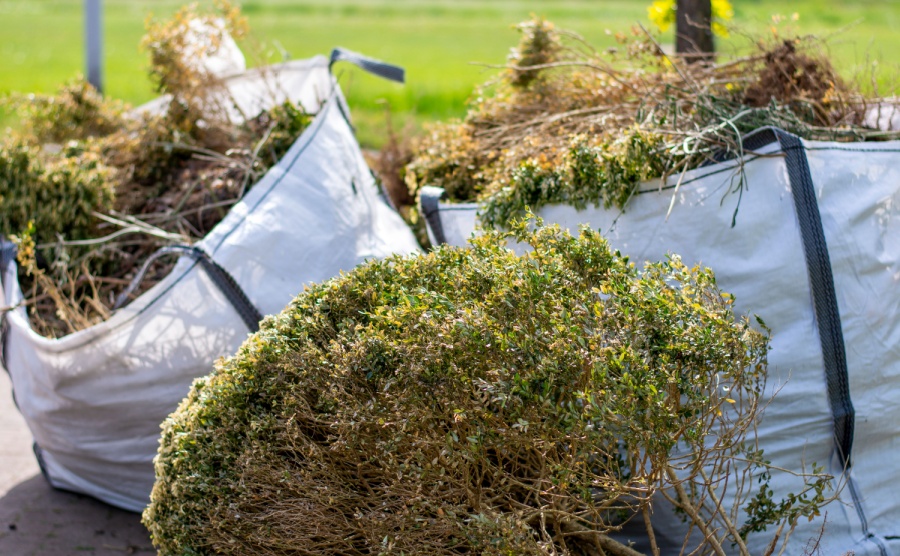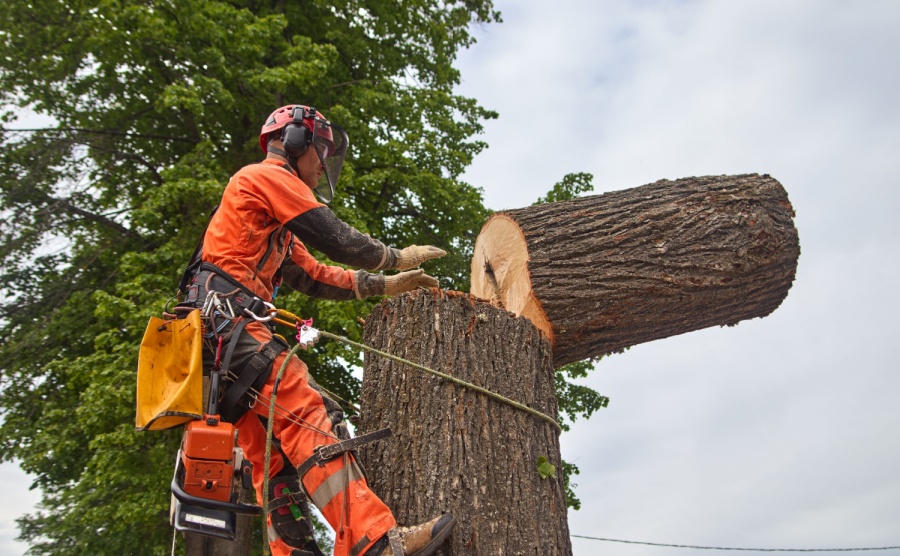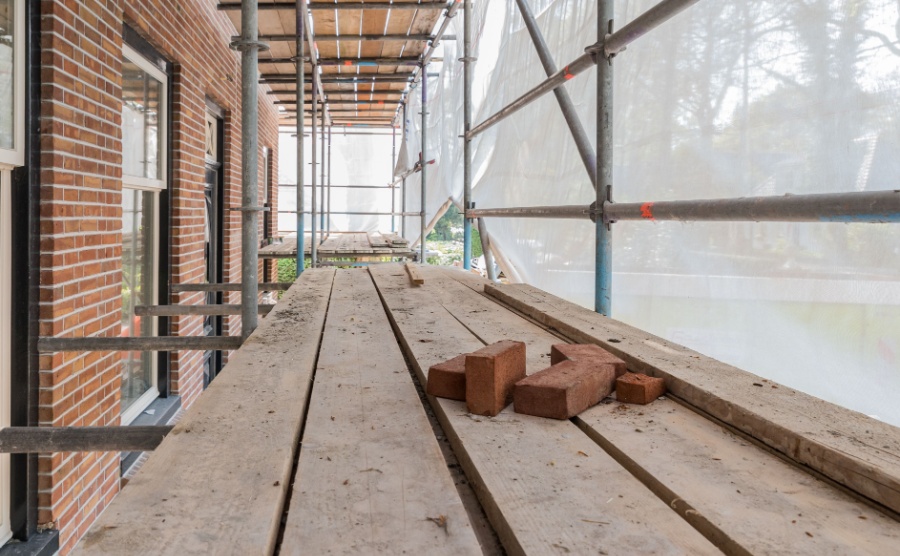One could be forgiven for thinking that moving to rural France can only result in a new life of peace and tranquillity. Which for many, it does. But the breakdown of relations between neighbours in France is one of the biggest causes of dispute. Forewarned is forearmed. We take a look at some of the ways to learn about your obligations and to ensure that you always remain on good terms with your neighbours in France.
This week in France, the government announced a new widespread and much publicised initiative to increase awareness of the mandatory obligation of clearing undergrowth from gardens. Currently this does not mean any changes to current laws. But from January 2025 new property owners will be reminded of their obligations surrounding this important aspect of house maintenance. Partially highlighted to ensure people remain on good terms with their neighbours. But, also as a proven necessity following the number of wildfires that the country has experienced over the past few years.
Find homes in France via our property portal.
Garden clearance
The French government have sent a clear call to action. Reminding French citizens of their obligation to clear undergrowth in their gardens, for the second year in a row. It is proven that clearing undergrowth reduces the risk of fire breaking out in the first instance. But in addition, reduces the risk of spread and increased intensity. As a result, valuable resource time of firefighters could be saved during these periods of danger. Lionel Berthet of the French General Directorate for Risk Prevention stated at a press conference on 15 October that “90% of the houses destroyed or severely damaged during forest fires [in recent years] were located on land with little or no undergrowth clearance”.
Failure to clear your land can result in significant fines
Within certain departments in France, this is not only an obligation of maintaining good relationships with neighbours, but is also obligatory for those living near to forests, moors and scrub lands. In these cases undergrowth must be cleared within 50 metres of houses and outbuildings. In future this distance may be increased to 100 metres, a change which is currently under consideration. Failure to clear your land can result in fines of up to €5,000, increasing up to €15,000. Even worse, a potential prison sentence if a fire breaks out.
Tree/hedge cutting
In rural France trees and hedges can be the quickest source of problems arising between neighbours. Many people have beautiful expansive gardens. But overhanging branches or trees growing through fences are a dispute in waiting. It is important to be aware that in France, unlike the UK, you have no immediate right to simply cut overhanging branches. In fact, doing so may land you in hot water. Ultimately even criminal charges. This goes against Article 544 of the Civil Code.
The requirement is to ask neighbours from where the branches originate, to cut the any overhanging your property. This places the onus of both the workload as well as any potential cost onto the owner of the tree/bush. You may however, reach an agreement giving authority to do it yourself. But in this case, it is wise to make a formal record, in case of any dispute arising after the fact.
Overhanging trees and branches are a very common source of relationship breakdown between neighbours in France. It advised to keep bushes and trees manageable so that the size of the task does not escalate. But of course, with regards to bushes, one must also respect the rules around when these can be cut due to the protection of hedgerow wildlife.
Noise rules
There are noise restrictions around animals, gardening and construction. For specific rules governing your area, the first port of call is the Mairie. Generally, when it comes to gardening and construction, the rules revolve around acceptable times that you are allowed to undertake these activities.
Any type of noise disturbance is an absolute no no on both Sunday afternoons and bank holidays
Normally, there is a start time with a mandatory break where one must respect the sacred lunchtime period. Last times for noise disturbance can be different during summer and winter periods. In many communes, any type of noise disturbance is an absolute no no on both Sunday afternoons and bank holidays. For those, perhaps retired people, these rules should be easy to follow. But for those who work, can prove trickier. Nonetheless, the rules should be respected. And noncompliance increases risk of complaints.
Animals are clearly less easy to manage in terms of when they choose to make noise. Especially those living outside. However, there are limits on, for example, when barking dogs cross the line from simply doing what dogs to, to being regarded as a nuisance to others. Animal noise disturbance however is the hardest to prove and perhaps the most frustrating dispute between neighbours in France. Particularly within rural areas. The story of Maurice the cockerel is now legendary. In which a noise complaint against a cockerel was thrown out of court due to the cockerel being an animal of the countryside with pre-established rights. The advice is simply to ensure you respect the particular rules of your commune.
Respect your boundaries
Nowhere is a boundary more important than in France. Boundary line disputes are perhaps the longest lasting and most frustrating disputes between neighbours in France. You can explore the boundary lines of you property on Géoportail and Cadastre.
It is important to note that when planting new trees in your garden, the Civil Code states that there must be a minimum of 2m between the boundary and a tree that will be more than 2m tall. The minimum distance requirement for all other plants is 50cm. There are also strict rules around distance from boundaries of terraces, outbuildings and new construction, including fences and walls.
Boundary line disputes are perhaps the longest lasting and most frustrating disputes between neighbours
In cases of boundary disputes between neighbours in France, the first stage is to confirm the legally binding boundary line. This is done through the means of a survey called a “bornage” and where there is any lack of clarity over this issue, it is well advised.
“Bornes” are boundary markers that confirm legal limits of boundary lines. It is often necessary to undertake this survey when the lines have become blurred over where the land limits are. Often as a result of the passage of time. However, it must be noted that this process can only be undertaken following either an agreement between two neighbours in France or following intervention by a court of law.
Building regulations/Planning
It is very important to remember that any renovation or improvement to your property, either changing the habitable space of your property or changing the exterior view of your property need required planning permission. This includes (though is not limited to) terraces, sheds, new outbuildings, windows and swimming pools. Any change requires advance planning permission agreement. Many an unsuspecting ex-pat has fallen foul of this. But ultimately ignorance is no defense in the eyes of the law.
Bypassing this obligation will give neighbours in France the right to complain. If found you do not have the required permissions, you can be made to demolish the structure. Often, construction without prior planning permission is only highlighted at the point of sale. Proving perhaps even more problematic. While it is possible to apply for retrospective permission for structures, there is no priority placed on fast tracking these. Even when a potential sale is at risk. And often the outcome is not positive. You certainly do not want a lost sale because you are now forced demolish that pretty feature, that you once put your heart and soul into building.
If at this point the prospect of all that paperwork is getting overwhelming, we’ve a handy guide for getting on top of French beauracracy.
Further advice
Following all the rules and obligations should leave no option for disputes to arise. However, sometimes despite all good intentions – and the art of politesse -, relations can deteriorate between neighbours in France. In case of any dispute, the first point of call is the local Mairie. Checking rules, regulations and perhaps establishing obligations that either party may have to fulfill. In the case of minor disputes, if this preliminary step doesn’t work, it is mandatory to seek the advice and intervention of a “conciliateur de justice”. Failure to do so could result in any potential court case being automatically thrown out. This may then result in a mediator being appointed, whose job it is to try and find a resolution between both parties.
If resolution cannot be reached, the case will end up in court. This is a long and drawn out lengthy process, as well as often costly. So the best advice is to avoid this if you are able no matter how resolution can be reached. Protecting your future peace in your new life in France starts with you. So better to build and then maintain cordial relations with your new neighbours in France.















